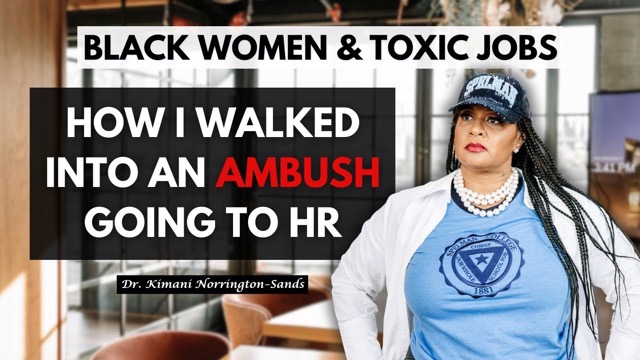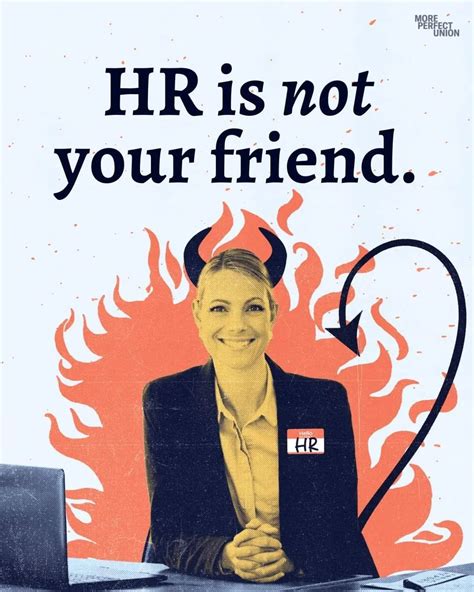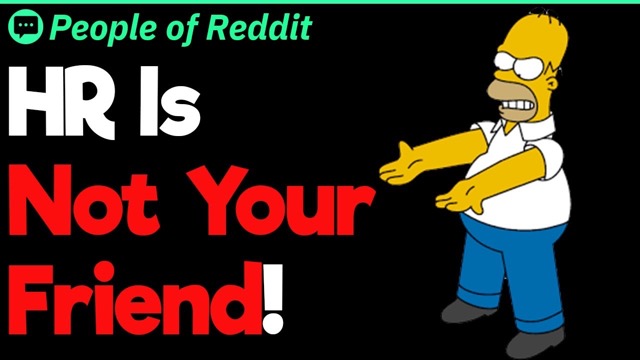

Feliks Perera, Michael Cole and Brian Martin
Published in The Whistle (Newsletter of Whistleblowers Australia), No. 122, April 2025, pp. 2-3
Many large organisations have a unit called Human Resources, more commonly known as HR. It might have some other name, like People Operations, Workforce Development or Human Capital Management.

Whatever it’s called, its purpose is to handle personnel matters, for example recruitment, onboarding, complaint handling, compliance with employment law, performance reviews and workforce planning. It sounds worthwhile, and much HR work is routine and unobjectionable.

However, in workplace conflicts, HR usually takes the side of management against an individual worker - that could be you!
When you’re having problems at work, you may be sent to HR to sort them out. Or maybe you go on your own initiative, expecting assistance. You should be wary and prepare carefully.
Workers in HR may be well-intentioned, but when managers are out to get you, HR’s role is to control you or, if necessary, get rid of you.
You’re called into a meeting with the boss, not expecting anything more than a routine discussion. Lo and behold, an HR representative is present. This is an ambush. Don’t stay. Ask for a formal meeting with HR and walk out. If pressured to stay, say you’re feeling ill and have to leave.

Another sort of ambush is when you meet the boss and unexpectedly receive a tongue-lashing. Some workers are stunned and sit through it all. It’s better to leave as soon as possible. Don’t tolerate abuse.
If you suspect an ambush, take along a witness - a colleague, a union representative, a friend. A witness can deter abusive attacks.
HR may have received specific instructions from your manager about what action is expected. You can ask HR about the purpose of the meeting and who asked that it be arranged, but don’t expect a useful answer.
If possible, get your union lawyer or representative to accompany you.
Remain calm and polite, and never raise your voice. If you become angry or abusive, no matter how well justified, this will be used against you. Stay confident and always operate in a low-key manner. Answer questions and allegations confidently, stating what you know and have observed.
You are entitled to have accusations or claims particularised - they must be stated exactly, in short sentences, in a document, so you can answer them. If you’re invited to reply to a long-winded document or statement or, for example, a record of interview with a colleague - don’t do it. Ask for any claims to be laid out succinctly (bluntly and shortly) in writing for you to answer. Arrange a further appointment and politely leave.
Only answer specified, detailed, and actual claims. Do not answer a general claim like “You are not a team player” or “Some workers are complaining about your attitude.” Instead, request documentary evidence for any such claim. Also request written documentation if you’re asked, “What do you say to this statement by your colleague?” Say you are happy to discuss those situations after documentation is provided.

You are entitled to reply to HR claims in writing. This is a safer option. Any little thing you say in a verbal interview might be used against you. Just hand over your written reply (to the specific claims) at the start of the meeting. If invited to add to your statement, don’t do it. Just say the written statement is your complete response and you have nothing to add.
Do not answer any question arising from a document you have not been provided a copy to keep. Receiving copies of witness statements is a matter of procedural fairness, and you can ask about relevant regulations. If your request for copies is refused, advise HR that you will seek outside advice on the matter.

Never refer to legal matters at this point. Employers know that few employees have the resources to pursue a court case. HR might say, “If you’re unhappy, take legal action.” Don’t respond to such provocations.
Decline to answer questions on your dealings with lawyers. HR may press you on this as they often fear the legal consequences of their actions, which could jeopardise their jobs. Bluntly state that such questions are not for discussion.
Most interviews take place during working hours. Politely refuse to answer phone calls from HR or management after hours or on weekends.
Take pen and paper and advise the interviewer that you will be taking down your own notes of the interview. Record the names of the persons in the room and their positions in the organisation. Take lots of notes - do not rush. Ask whether you will receive a copy of the interview for your information. Recording on mobile phones may not be allowed even though you have the right to make a record of the interview. You may have to resort to making handwritten notes.

There is no legal requirement to sign any HR document even if there is a place for signatures. If they insist, say you will obtain outside advice first.
Have a good understanding of your employment contract and the company policy and procedures on matters dealing with internal corruption, bullying, reprisals, harassment, etc., and the specific issues raised by HR.
Make sure that HR personnel do not use harsh language or tone of voice to intimidate you. Interrupt the speaker and state that you will not tolerate intimidation.
Before you leave the interview, make sure that you and HR are clear on what was discussed at the interview. If any instructions are given, insist that such instructions be in writing. Do not accept verbal instructions as they can be easily misconstrued.
After you leave, write a brief summary of what happened, especially any agreements reached, check it with your witness and send a copy to HR saying you will assume they accept it as accurate unless you hear otherwise. Write a more detailed version for your own files, and give copies to your lawyer and a trusted colleague or friend.
You may feel like discussing your situation, including your HR interview, with colleagues. Be careful. Some co-workers sound sympathetic but will act against you behind your back, even reporting to the boss. Even your casual comments may be used against you, especially if you reveal vulnerabilities. On the other hand, a truly trustworthy co-worker can be a valuable ally, providing advice and support. This is most likely when the two of you are being targeted by the same manager for the same reason.
Good luck! Actually, don’t rely on luck. Prepare carefully, liaise with your supporters, document everything and keep calm.
Feliks Perera is treasurer and Michael Cole and Brian Martin are vice presidents of Whistleblowers Australia.
Brian Martin's publications on suppression of dissent